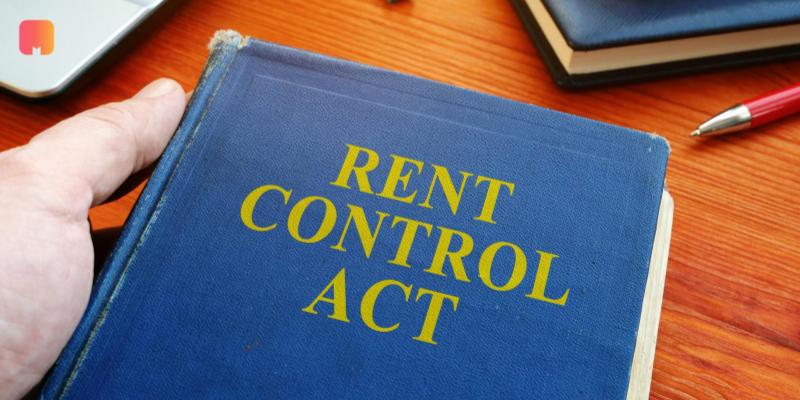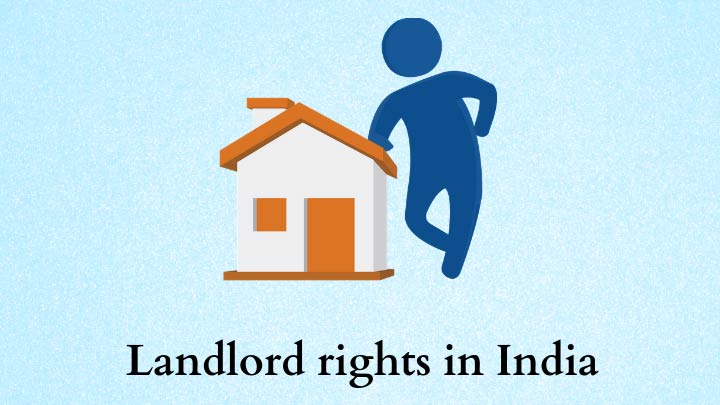
Rent is a systematic payment made by a tenant to the landlord in return for the possession of the premises such as land, building, apartment, office, or other property. The Rent Control Act in India was introduced by the Government in 1948 to eradicate the abuse of the tenant by the landlord. The Rent Control Act tends to provide fair rents to the landlord and a tenant is protected under any circumstances against eviction.
The rental agreement is a contract that empowers tenants but also restricts them from taking the legal ownership of a property. With the agreement in place, both the landlord and the tenant know their roles, rights, and responsibilities.
Rental Control Act: Types Of Tenancy In India
There are 3 types of tenancy in India and the rental agreement of any type must be registered. The landlord can be fined and a case of violation can be imposed if the agreement is not registered.
1. Statutory Tenancy
In this agreement, a tenant is protected against eviction by the landlord. A tenant can be evicted if he has caused any destruction to the property or has not been using it for a period of six months and above. The rent that the tenant pays is very minimal and upon the tenants death where the family members can, by law, occupy the property based on the status of the former tenant.
2. Lessee Tenancy
A lease is a contract renting the land, the building, or the premises to the tenant. The tenant has more rights legally and can sub-lease the property if the contract with the landlord does not state otherwise. The lessee is in the premises control and does not have the fear of eviction by the landlord and can only be evicted if there is any violation based on the clauses in the rental agreement.
3. Licensee Tenancy
A licensee has no interest in the premises and continues to enjoy the benefit until the contentment of the landlord. According to the Indian Easement Act of 1882, a license acts as permission wherein the landlord grants the tenant the right to live in the said property for a specific period.
The right is called a license, and without such a right, the action would be unlawful and the right does not amount to an easement or an interest in the property. Termination of a license is easier when compared to other types of tenancies.
Rights Of The Tenant

The Rent Control Act has authorized the rights of a tenant and it also protects their position.
1. Will Not Be Evicted Unfairly
A tenant cannot be evicted by the landlord legally until there is a violation of the clauses mentioned in the rental agreement. Evictions may vary from one landlord to tenant, and the landlord cannot evict the tenant on their own impulses and inclinations
2. Right To Pay A Fair Rent
The rental value of the property is about 8%-10% of the property andthere is no limit on the rent to be fixed.
The landlord may fix the rent of the property on their own based on the current rental rates and the cost of construction of the property.
The tenant has the right to file a case against the landlord if they feel that the amount of rent demanded by the landlord is irrational.
3. Right To Essential Services
The tenant has the right to demand basic essential amenities such as electricity and fresh water from the landlord. These amenities cannot be terminated by a landlord in the case of failure of payment of the rent.
Rights Of A Landlord

The rental agreement authorizes the legal right of the landlord over the property. Hence, even if the property is let out the tenant cannot encroach upon it. According to the Rent Control Act, there are three important rights of a landlord.
1. Right To Evict
The landlord has the right to evict a tenant based on any violations of the agreement. This right has variations in different Indian states and according to the law, the owner should give a notice of eviction to the tenant, before approaching the court.
2. Right To Repossess The Property For Maintenance
In order to upgrade the facilities of the property, renovations, or maintenance of the building, a landlord can temporarily repossess the property. However, changes made to the property should not be intended to bring any discomfort to the tenant.
3. Right To Charge A Rent
Under the Rent Control Act, the owner can charge rent and can increase it over a period of time. The rent agreement must clearly mention that the rent will be revised over a particular period of time.
Closing Thoughts
It is very important to have a rental agreement in writing between the tenant and the landlord or owner to safeguard the entries of both parties. It is important to have a security deposit that is not more than three times the amount of rent.
A legal paper of agreement with signs from both the tenant and landlord has to be completed. The owner has to keep the original form and the tenants receive the duplicate copy. If the tenant does not get a copy of the agreement, they are not entitled to pay the rent.
Rent Control Act FAQs:
1. What is a rental agreement
A rental agreement is signed between two parties, a landlord and a tenant after they agree to let out and occupy the property, based on mutually acceptable terms and conditions.
2. Would the rent control act be applicable to all types of tenancies in India?
There are a few exceptions for Rental control act in india .
3. By what percent can a landlord increase or revise the rent per year?
A landlord can revise the rental amount by 5%- 10% extra per year. There may be various reasons such as location, size of the property, place, and facilities provided at different properties for the landlord to increase the rent. It is variable from landlord to landlord and property to property.
4. What is the difference between a rental agreement and lease agreement?
A Rental Agreement is a mutual agreement for a short period of time. It may be a deal for a few months or one year.
A Lease agreement, on the other hand, is an agreement between the landlord and tenant for a longer period of time. Under a lease agreement, the landlord cannot evict or ask the tenant to move out of the property during the lease period.
5. Which is better, lease or rent?
In leasing, the servicing and maintenance are done by the lessee when they take the property on lease. In rent, the servicing and maintenance are done by the landlord even if the tenant takes the property on rent. Leasing is done for a fixed period of time – mostly for the medium to long term.
In a lease, the amount paid for using the property will be refunded after the fixed lease time period. In a rental agreement, the rent amount will be charged on a monthly basis and the security deposit will be refunded after the termination of the rental agreement.
Additionally provided keywords “Rental control act in India/ rent control act India” were not used anywhere in the doc – “I have rectified my error and used it in the second FAQ.”






